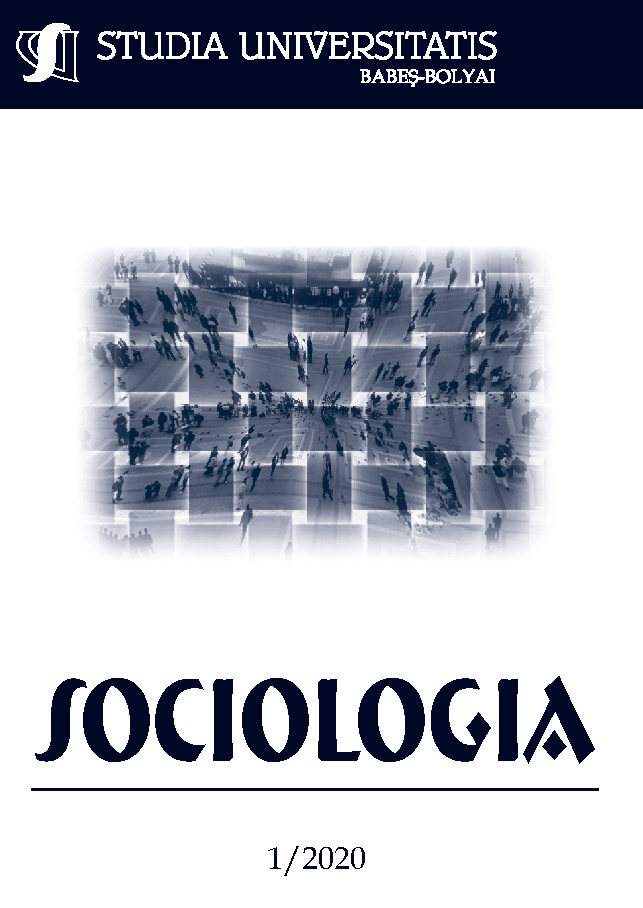EDUCATION FOR (UN)SUSTAINABLE DEVELOPMENT: RECOGNIZING ANTHROPOCENTRISM IN ROMANIA’S SUSTAINABLE DEVELOPMENT STRATEGY
DOI:
https://doi.org/10.2478/subbs-2020-0004Keywords:
political ecology of education, education for sustainable development, anthropocentrism, Eurocene.Abstract
The environment is no longer a backdrop, but an agent pressing us to restructure our economic and political systems, down to our livelihoods. This research aims to make a critical overview of the Sustainable Development (SD) model. It looks at how market fundamentalism and anthropocentrism are driving forces in the shaping of its proposed form of education: education for sustainable development (ESD). This “new” educational paradigm aims to support the SD strategies that are globally implemented and “localized” at the nation-state level. The current SD model and the Agenda 2030 operate within a specific framework of the nature/culture divide, one that reiterates human domination. As such, this research aims to analyse the educational values within the idea of sustainable development – one that wishes to “reorient” society but instead ends up emphasizing it in its anthropocentric form. It does so by close reading and analysis of the UNECE Strategy for Education for Sustainable Development and Romania’s National Strategies for Sustainable Development, 2008 and 2018. Concluding, it might very well be the case that restructuring schooling – and governing - to bring it up to the realities of climate change requires rethinking our fundamental educational values and the nature/culture divide, as well as making nation-states less servient of markets and less growth-oriented.References
Banerjee, Subhabrata Bobby (2003). Who Sustains Whose Development? Sustainable Development and the Reinvention of Nature. Organization Studies 24 (1): 143–80. https://doi.org/10.1177/0170840603024001341.
Boatcă, Manuela (2006). Semiperipheries in the World-System: Reflecting Eastern European and Latin American Experiences. Journal of World-Systems Research, 321–46. https://doi.org/10.5195/jwsr.2006.362.
Bonneuil, Christophe & Fressoz, Jean-Baptiste (2017). The Shock of the Anthropocene: the Earth, History, and Us. Verso.
Carrington, Damian. (2019, May 17). Why the Guardian is Changing the Language it uses about the Environment. Retrieved https://www.theguardian.com/environment/2019/may/17/why-the-guardian-is-changing-the-language-it-uses-about-the-environment.
Dawson, Ashley (2016). Extinction: a radical history. New York: OR Books.
Escobar, Arturo (2015). “Development, critiques of”. In Giacomo D’Alema; Federico Demaria; Giorgos Kalis (eds.): DeGrowth. A Vocabulary for a New Era. Routledge: New York, pp. 80-87.
European Comission (2019). Education and Training Monitor 2019. https://ec.europa.eu/education/sites/education/files/document-library-docs/volume-1-2019-education-and-training-monitor.pdf.
Furtună, Adrian Nicolae (2019). O istorie a rușinii. Discurs ideologizant între “robia țiganilor în Moldova și Țara Românească” și Sclavia romilor în spațiul românesc. In Oana Dorobanțu and Carmen Gheorghe (eds.). Problema Românească: O analiză a rasismului românesc. Bucharest: Editura Hecate, pp. 24 - 37.
Gheorghe, Carmen (2019). Cu fustele-n cap pentru feminismul rom. In Oana Dorobanțu and Carmen Gheorghe (eds.). Problema Românească: O analiză a rasismului românesc. Bucharest: Editura Hecate, pp. 135 – 149.
Grove, Jairus Victor (2017). The Geopolitics of Extinction. Technology and World Politics, 204–23. https://doi.org/10.4324/9781317353836-11.
Grünberg, Laura; Rusu, Andreea; Samoilă, Elena (2019). Barometrul de gen: România 2018. Bucharest: Editura Hecate.
Guga, Ștefan (2016). Muncă Atipică în România de la izbucnirea crizei. O perspectivă de ansamblu. Bucharest: Next Publishing.
Haraway, Donna; Noboru Ishikawa; Scott F. Gilbert; Kenneth Olwig; Anna L. Tsing, and Nils Bubandt (2015). Anthropologists Are Talking – About the Anthropocene. Ethnos 81 (3): 535–64. https://doi.org/10.1080/00141844.2015.1105838.
Horta, Oscar (2009). What Is Speciesism? Journal of Agricultural and Environmental Ethics 23 (3): 243–66. https://doi.org/10.1007/s10806-009-9205-2.
Huckle, John, and Arjen E.j. Wals (2015). The UN Decade of Education for Sustainable Development: Business as Usual in the End. Environmental Education Research 21 (3): 491–505. https://doi.org/10.1080/13504622.2015.1011084.
Hursh, David, Joseph Henderson, and David Greenwood (2015). Environmental Education in a Neoliberal Climate. Environmental Education Research 21 (3): 299–318. https://doi.org/10.1080/13504622.2015.1018141.
IPBES (2019). Summary for Policymakers of the glob.al as.sessment rep.ort on biodiverse.ity and eco.system se.rvices of the Intergovernmental Science-Policy Platform on Biodiversity and Ecosystem Services: https://www.ipbes.net/system/tdf/spm_global_unedited_advance.pdf?file=1&type=node&id=35245.
Jickling, Bob (1992). Viewpoint: Why I Don’t Want My Children to Be Educated for Sustainable Development. The Journal of Environmental Education 23 (4): 5–8. https://doi.org/10.1080/00958964.1992.9942801.
Kopnina, Helen. (2012). Education for sustainable development (ESD): the turn away from “environment” in environmental education? Environmental Education Research 18(5), 699–717. Doi:10.1080/13504622.2012.658028.
Latour, Bruno. (2015). Nu am fost niciodată moderni. Cluj: Tact.
Letters. (2019, March 01). Climate crisis and a betrayed generation. Retrieved from https://www.theguardian.com/environment/2019/mar/01/youth-climate-change-strikers-open-letter-to-world-leaders.
Lloro-Bidart, Teresa (2015). A Political Ecology of Education in/for the Anthropocene. Environment and Society 6 (1). Doi:10.3167/ares.2015.060108.
Martelli, Maria (2018). The Making of Pupils: Institutionalized Education in Romanian High Schools. Studia Universitatis Babeș-Bolyai Sociologia, 63(1), 113-133. Doi:10.2478/subbs-2018-0007.
Merchant, Carolyn. (2005). Radical Ecology: The Search for a Livable World. Routledge.
Moore, Jason (2016). Anthropocene or Capitalocene? Nature, History, and the Crisis of Capitalism. PM Press.
Morton, Timothy (2009). Ecology without nature: Rethinking environmental aesthetics. Harvard University Press.
Morton, Timothy (2019). Humankind: Solidarity with Non-Human People. Verso.
Öhman, Johan (2006). Pluralism and Criticism in Environmental Education and Education for Sustainable Development: A Practical Understanding. Environmental Education Research, 12(2): 149–163. Doi:10.1080/13504620600688856.
Pedersen, Helena, and Barbara Pini (2016). Educational Epistemologies and Methods in a More-than-Human World. Educational Philosophy and Theory 49 (11): 1051–54. https://doi.org/10.1080/00131857.2016.1199925.
Sauvé, Lucie (2005). Currents in Environmental Education: Mapping a Complex and Evolving Pedagogical Field. Canadian Journal of Environmental Education 10 (1): 11-37.
Scott, Sabrina (2019). Witchbody. A Graphic Novel. Weiser Books.
Scranton, Roy (2005). Learning to Die in the Anthropocene: Reflections on the End of a Civilization. City Lights Books.
Stevenson, Robert B. (2007). Schooling and Environmental Education: Contradictions in Purpose and Practice, Environmental Education Research, 13 (2): 139-153. Doi: 10.1080/13504620701295726.
Sullivan, Sian (2009). “Green Capitalism, and the Cultural Poverty of Constructing Nature as Service Provider”. In Steffen Böhm & Siddhartha Dabhi (eds.), Upsetting the Offset, MayFly Books.
Vasile, Mihai; Muscă, Mădălina; Angi, Daniela; Bădescu, Gabriel; Florian, Bogdan; Țoc, Sebastian (2020). “Pisa 2018: Ce ne spun noile rezultate Pisa despre inegalitățile educaționale din România?” Institutul pentru Solidaritate Sociala, http://solidaritate-sociala.ro/wp-content/uploads/2020/06/pisa2018-v2.pdf.
Downloads
Published
How to Cite
Issue
Section
License
Copyright (c) 2020 Studia Universitatis Babeș-Bolyai Sociologia

This work is licensed under a Creative Commons Attribution-NonCommercial-NoDerivatives 4.0 International License.



